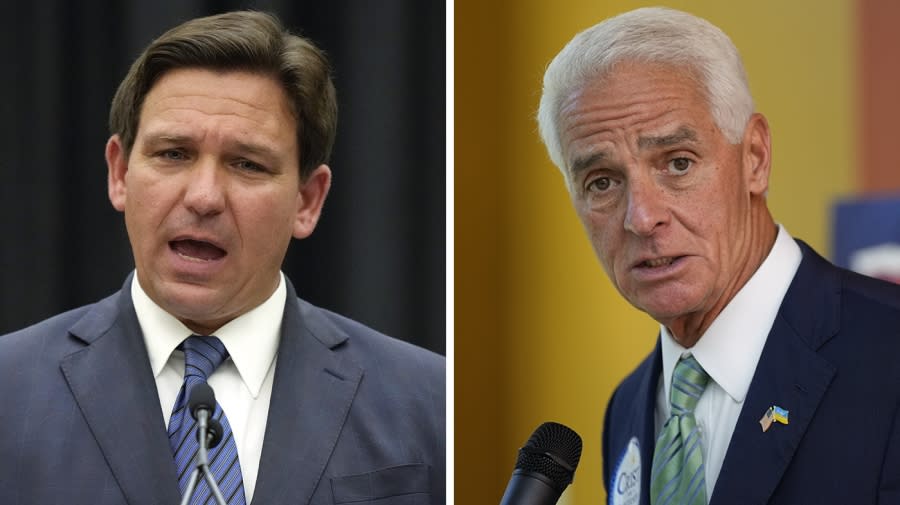DeSantis leading Crist by 14 points in Florida governor race: survey

- Oops!Something went wrong.Please try again later.
- Oops!Something went wrong.Please try again later.
Florida Gov. Ron DeSantis (R) leads his Democratic challenger, Charlie Crist, by 14 points in the race for governor in the state, according to a new poll.
The survey from the University of North Florida’s Public Opinion Research Lab showed 55 percent of likely voters said they plan to vote for the incumbent governor, while 41 percent said they would vote for Crist.
The poll is the most recent to find DeSantis with a large lead over Crist, who previously served as governor of the state from 2007 to 2011 as a Republican before switching parties.
Less than 1 percent in the new survey said they would vote for someone else to be the state’s next governor, and 4 percent said they were unsure or did not answer the question.
“Given DeSantis’s historic fundraising and popularity among Republicans, his lead in this race is not surprising,” Michael Binder, the faculty director of the research lab, said in a statement. “The surprise in these numbers is that a statewide race in Florida is closer to a blowout than a recount.”
The results come after DeSantis and Crist met for their only debate on Monday.
Crist slammed DeSantis on a number of issues, including over speculation that DeSantis may be planning to run for president in 2024 and not complete a full term as Florida governor, while DeSantis criticized the Biden administration and made an effort to tie Crist to the president.
The new poll also found one-third of respondents said voter fraud affecting the outcome of a race happens less than 1 percent of the time, while a slight majority of respondents, 54 percent, said they believe it happens more frequently.
Half of all respondents also said President Biden definitely won the 2020 presidential election, while 19 percent said former President Trump won.
“Most of the research in this area suggests impactful voter fraud is rare—well under 1% of elections,” Binder said.
“But most people seem to think it’s much more prevalent,” he continued.
The poll was conducted from Oct. 17 to 24 among 622 likely voters. The margin of error was 4.7 percentage points.
For the latest news, weather, sports, and streaming video, head to The Hill.

